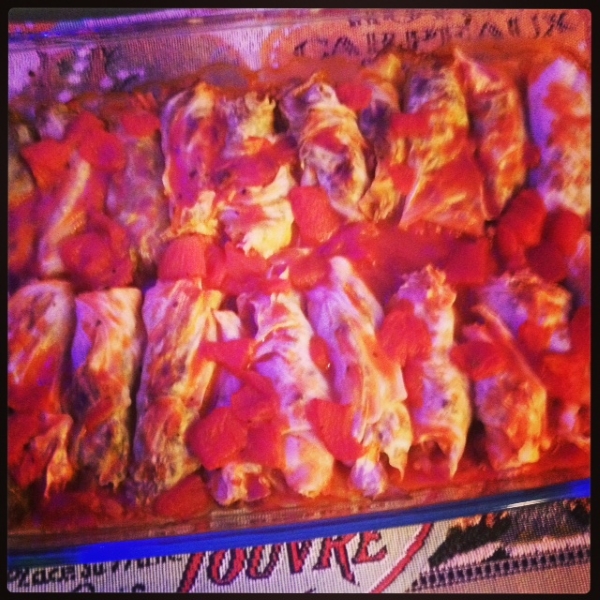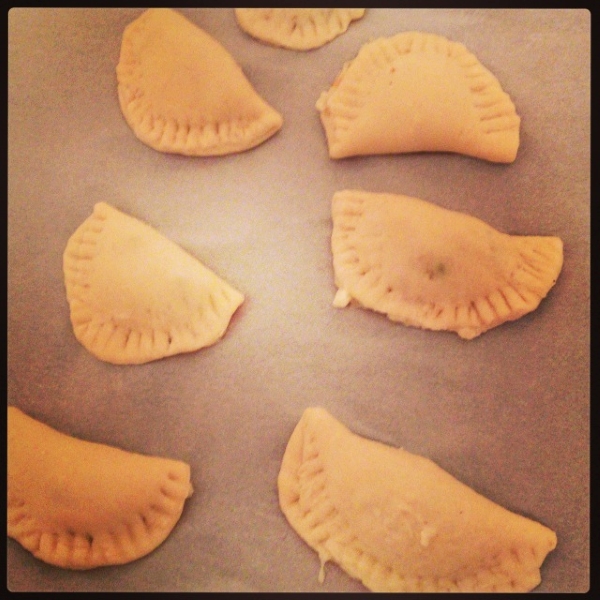by Sally Parlier
Every few months or so when I was young, my parents would get a craving for some fried cabbage, served with pinto beans, cornbread, and a tall, cold glass of milk. This was the food of their youth in Watauga County – filling, homegrown, and low cost – and still staples of our home in Deep Gap. But I was, and still am in many ways, a notoriously picky eater. I ate my pintos sulkily, trying to avoid looking at my sister and father’s glasses of milk packed full of mashed up cornbread, breathing through my mouth at the fried cabbage. I balked harder when my father tried to introduce me to buried cabbage. In the years before refrigeration was common, people in the mountains used to store their fall crop of cabbage by burying it in a trench in the ground. Covered with earth or hay, the cabbage would provide one of the few sources of fresh vegetables in the winter months and could be dug up whenever the family was ready to eat it. My father and his brother put theirs into the ground behind Granny’s house next door, burying the heads upside down with the stalks still attached. A month or so later, I went out back with my father and watched in horror as he dug this vegetable zombie out of the ground, covered with blackened and yellowed outer leaves. Underneath the bad leaves, the white cabbage shone like a bald head. He took it inside and cooked what he declared the sweetest cabbage he’d ever eaten, while I resolved never to eat cabbage. Ever.

But then, I fell in love with a boy who loved cabbage. As he’s from Ukrainian-American stock, he claimed it came naturally to him, this love of cabbage, beets, sour cream, paska with dried fruits, and all other manner of foods on my no-go list that his grandmother had taught him to love. But even though I, too, come from people who needed foods just as hardy as they were, foods that could comfort throughout the winter, I struggled with combining our kitchens when we moved in together. One day I came home from work and found him sitting in a track suit in our recliner, eating a quarter head of cabbage raw like an apple, and I about fell out. We negotiated a truce with sometimes separate meals, sometimes separate sides of the refrigerator, while I slowly over the course of our twenties worked to try new foods, backslid out of my vegetarianism, and learned to cook some basics beyond pasta and sauce.

As we got married, moved away from my home in the mountains, we’ve started to think about what kinds of traditions we’d like to have for our family and future children. We’ve begun celebrating Ukrainian Christmas (what my family would call Old Christmas) around January 6 with all the other academic holiday orphans from his PhD program at NC State. Through this tradition, I’ve learned to love pierogi, as even the pickiest of eaters will hardly deny the comforts of dumplings stuffed with mashed potatoes and tiny onions. After a few failed attempts to eat borshch, I’ve also managed to find another way of eating beets, learning to love their earthiness after roasting them in the oven with NC sweet potatoes. And this year, for the first time, I braved holubtsi, those rolls of steamed cabbage stuffed with kasha and meat and cooked in tomato sauce. I marveled at how the steaming transformed the leaves, creating a texture that melted into the filling. I ate, and I wished my grannies could see how I still ate their mountain foods, just with different twists from far-off places – my husband washing his down with vodka while I let a (store-bought) jar of moonshine burn my throat.
…………………………………………………………………….
 Sally Parlier is a native of Deep Gap, NC. She is the great-granddaughter of Willard and Ora Watson, traditional artists from Watauga County, who were recognized with a 1994 North Carolina Heritage Award. She lives in Raleigh, works in Durham, and spends her weekends trying to see the mountains as often as she can.
Sally Parlier is a native of Deep Gap, NC. She is the great-granddaughter of Willard and Ora Watson, traditional artists from Watauga County, who were recognized with a 1994 North Carolina Heritage Award. She lives in Raleigh, works in Durham, and spends her weekends trying to see the mountains as often as she can.
We were so excited to have Sally write a post for us this week and so glad you all enjoyed!
Sally is a goodun. This personal reflection on learning to appreciate her vegetables nicely expresses the negotiation of identity–local and marital–in eating and reflection. She was an excellent student at Appalachian State, where the stream running through campus is called Kraut Creek because there once was a sauerkraut factory upstream.
I lived in Deep Gap in the 1970’s and the pinto’s and cornbread dinners there were the best. But nothing compares to leather britches with cracking cornbread I used to eat there. After you’ve had Deep Gap spring water, you will never enjoy tap water again.